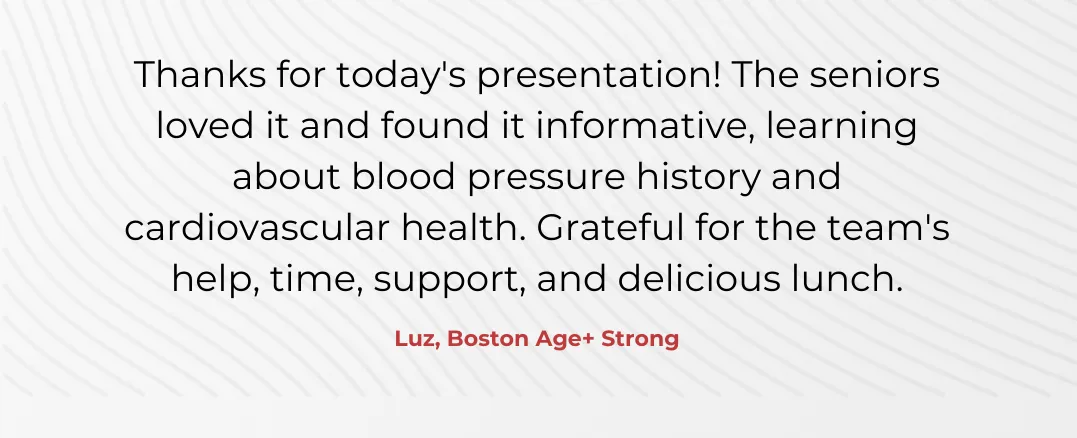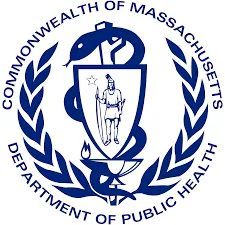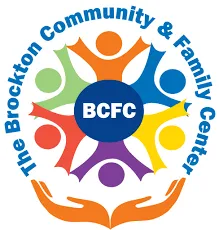About Us
Heart of a Giant Foundation
HGF
About Heart of a Giant Foundation
At Heart of a Giant Foundation, we are committed to reducing the impact of heart disease worldwide. We strive to become the leading partner in detecting, diagnosing, and managing cardiac risk factors. Our multi-level intervention programs empower individuals to take control of their health. Join us now to impact communities affected by heart disease significantly.

Our Vision and Mission
Our vision is clear: to ensure that every individual in the community has access to effective heart health education, superior healthcare assistance, and community resources, enhancing their overall health, quality of life, and the management of their heart conditions and related risk factors. We strive to achieve this vision by:
Our mission is to proactively identify heart-related risk factors in at-risk population groups, provide them with the support and knowledge they need to become self-reliant, and advocate for managing and living with their health conditions.
Raising awareness about risk factors and symptoms of cardiac conditions;
Promoting regular health check-ups, screening, and early diagnosis;
Providing culturally intelligent and responsive services;
Improving patient-provider relationships;
Enabling access to improved care and better health outcomes;
Empowering patients and caregivers, and
Promoting advocacy and self-advocacy.

Some Tough Truths About Heart Disease
Heart disease remains the No. 1 cause of death both in the US and the World, with staggering statistics highlighting the urgency of our mission:
18 million+ lives are lost to heart disease globally each year.
655,000+ deaths occur in the US annually due to heart disease.
495,000+ individuals suffer from high blood pressure-related casualties every year.
Despite these alarming figures, only about 49% of Americans are aware of their heart health status, underscoring the critical need for increased education and awareness.
High blood pressure, also known as hypertension, is a common heart condition that has been identified by the US Centers for Disease Control and Prevention (CDC) as a leading risk factor for heart disease, stroke, kidney disease, and vascular dementia.
According to a recent study conducted by the Boston Public Health Commission, one out of every four adult residents in Boston reported having hypertension. The study also found that the percentage of hypertension was higher for Black (36%) and Latino (27%) adults compared to White adults (20%). Neighborhoods with predominantly Black people, such as Mattapan, Dorchester, or Roxbury, had hypertension rates ranging from 34% to 42%.

More About Us
Eager to learn more about our efforts and impact? Visit our News and Insights Page. It's a space where we share blogs, insights, stories, and project updates. Our blog isn't just about posting articles; it's a platform for engagement. We love interacting with our readers in the comments section, fostering a community of like-minded individuals passionate about advancing the world of heart health.
Join us at Heart of a Giant Foundation as we work with our communities, supporters and partners to turn the tide against heart disease, one heart at a time.
News and Insights
Disclaimer:
The information shared on this page is not intended to replace professional medical advice. Always consult with a healthcare provider for any medical issues.

TIPS FOR REDUCING STRESS
Stress can have a profound impact on our overall well-being, particularly on our heart health. The good news is that by investing in stress-reduction strategies, we can protect our hearts, and improve quality of life. Let’s explore these strategies in more detail and discover steps we can take to positively impact our heart health.
1. Engage in Regular Physical Activity
Exercise has been shown to be a powerful stress reducer. This is because it releases mood-enhancing endorphins, promotes better blood flow to the brain, and lowers the levels of stress hormones like cortisol in the bloodstream. Engaging in regular physical activity, such as aerobic exercises, walking, strength training, or yoga, can help alleviate stress, improve mood, and enhance overall cardiovascular fitness.
2. Practice Stress Management Techniques
Incorporate proven stress management techniques into your daily routine. Deep breathing exercises, meditation, progressive muscle relaxation, or cognitive-behavioral therapy techniques can significantly reduce stress levels and promote relaxation. These techniques train the body and mind to relax, cope better, and reduce the negative impact of stress on our well-being.
3. Prioritize Quality Sleep
Adequate sleep is essential for managing stress because it helps the body and mind recover, process emotions and balance hormones like cortisol. Sufficient sleep improves mood, cognitive function, and decision-making, and this enhances our ability to manage stress effectively. Make sleep a priority by establishing a consistent sleep schedule, creating a relaxing bedtime routine, and ensuring your sleep environment is conducive to quality rest.
4. Seek Social Support
Building a strong support system is crucial in managing stress, because it provides emotional assistance and a sense of belonging, reducing feelings of loneliness and isolation. Knowing we have people who care about us and are there to listen and help can significantly improve our ability to manage stress and navigate challenging situations more effectively. Seek out trusted friends, family members, or community groups with whom you can share your feelings and experiences, and remember to do the same for others and offer support where you can.
5. Make Time for Leisure and Hobbies
Engaging in activities that bring joy and relaxation is essential for good health. Pursue hobbies, listen to uplifting music, read books, spend time in nature, or engage in creative outlets. These activities provide a break from daily pressures and shift our focus away from stressors, allowing us to recharge. They trigger the release of feel-good chemicals like endorphins, which boost our mood. Regularly participating in activities that we enjoy nurtures our mental health, increases happiness, and builds the resilience needed to cope with stress.
6. Maintain a Healthy Lifestyle
Adopting a heart-healthy lifestyle can help mitigate the impact of stress on the cardiovascular system in a number of ways. For example, eating a balanced diet and exercising regularly strengthens the heart, improves blood flow, and regulates blood pressure. This can help to counteract the negative effects of stress. Relatedly, avoiding unhealthy habits like smoking and excessive alcohol consumption reduces strain on the heart. By choosing a heart-healthy lifestyle, we can protect our cardiovascular system and minimize the harmful effects of stress.
7. Seek Professional Help if Needed
If stress becomes overwhelming or unmanageable, it’s wise to seek professional help. Healthcare providers or mental health professionals can provide guidance, support, and appropriate interventions to help you navigate through stress and its impact on your heart health.

Photo by Savanna Goldring
Stress can have a significant impact on heart health, but understanding the scientific link between stress and cardiovascular well-being allows us to take proactive steps towards stress reduction. By incorporating stress management techniques into our daily lives and adopting a heart-healthy lifestyle, we can significantly improve our overall well-being and protect our heart health. Remember, managing stress is an ongoing process that requires consistent effort and commitment. Start by assessing your stress levels, identifying areas for improvement, and gradually implementing stress reduction strategies. By taking care of your heart and prioritizing stress management, you can lead a healthier and more fulfilling life. Stay tuned for more valuable information on stress management and heart health. Remember, your well-being matters, and investing in stress reduction is a vital step towards a healthier heart and mind.
Testimonials
The Heart of a Giant Foundation, Inc. is a 501(c)(3) nonprofit organization, EIN 84-2900386. Donations are tax-deductible.





























